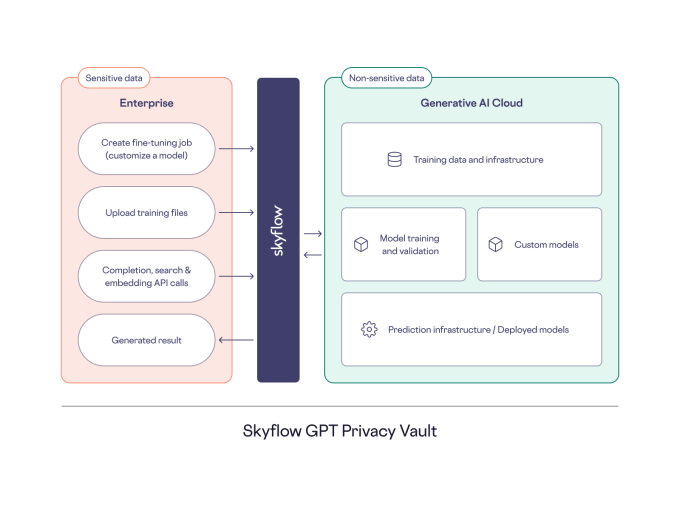Startups that deliver their service via an API are having a moment. Or perhaps a year.
Speaking with founders and investors this year, it has become clear that the API model of delivering a product is more than an occasional hit-maker for companies like Twilio or Plaid. Instead, it appears that there is ample room for lots of API-powered startups to build and prosper.
TechCrunch took note of a cluster of funding rounds for API-powered startups earlier this year, only to see more of the same as startups like Alpaca (equities trading via an API) reported massive growth and Noyo (APIs that link players in the health insurance market) raised new capital.
There’s more to come. Twilio’s Jeff Lawson told TechCrunch recently that “the world is getting broken down into APIs” as “every part of the stack of business that a developer might need to build is eventually turning into APIs that developers can use.”
We should expect to see more startups, then, pursuing the business model as time passes.
To dig deep into the API-focused startup space, we’ve done something unusual today. Instead of merely ringing a bunch of VCs to get their take — though we did that as well — we took the time for this survey to also bring a number of entrepreneurs into the conversation.
With two sets of questions targeted at each group, here’s who we corresponded with:
And they had a lot to say.
Big themes
We’ll limit ourselves to two themes from investors and two from founders. But don’t worry, as we’ve embedded full responses down below.
Starting with investors, our chief takeaway was that the money folks are bullish on not only the current generation of API-powered startups, but also on their future. We asked about the possible union between API-powered startups and low-code/no-code technologies. Our hunch was that as more folks can code in some manner, and APIs get better, there comes a day when nontraditional developers can leverage application programming interfaces.
That day, if it comes, could provide a huge boost to the startups in the space, right? Root VC’s Edward seems to think so. He answered our question about the possibility of nontraditional developers interacting with APIs in the future with an enthusiastic yes, adding that he believes that “eventually almost everyone will be a programmer, but that our definition of programmer will expand to fit a much broader range of activities.” That could mean lots more folks out there ingesting, using and paying for access to APIs that startups will be there to offer.
Even more, Edwards added that the same forces work in reverse, that “API-driven businesses enable low-code implementations and give superpowers to junior developers or people who don’t consider themselves developers at all.”
Shasta’s Roth agreed, saying that “these are highly related segments: low code and APIs.”
Our second investor takeaway is that it’s too simplistic to merely say that API-focused startups are going to be akin to SaaS startups in many ways, albeit with lower gross margins. They are not worse businesses than SaaS startups. Instead, they are different. Roth noted, for example, that API-delivered startups should have strong gross retention (logo retention), but that they may not have strong upselling power (net retention). Adding to the nuance of the conversation around economics, the Accel duo said that while API-powered startups may have “endemically lower” gross margins than SaaS startups, they also often feature “lower spend on sales and marketing and stronger net retention, both via lower churn and faster, bigger expansion.”
So, the net retention point is probably not fully settled yet, but what is clear is that our previous view of API startup economics is probably a bit simplistic.
From our trio of founders, two quick things. First, the venture capital community is as active as you’d expect, especially when it comes to preemption. Second, their startups tend to have improving economic profiles over time. The question for them then becomes how far they can run the gross margin numbers up before they go public.
We’ll see. You’ll find full answers below, lightly edited for clarity:
Isaac Roth, Shasta Ventures
Are API-delivered startups a plank in your firm’s general investment thesis? If so, why?
Yes, very much. But making APIs an investing pillar is like making SaaS an investing pillar — it’s too broad. Rather, we have integrated the understanding that there is a shift to composable capabilities and that it is no longer the domain of custom expensive integrators to hook these capabilities together. The secret sauce is what industries will this affect in which ways, what are the opportunities that arise as a result, which types of APIs will be adopted first and last, of course, where does value lie?
We also see increasing use of APIs by enterprises leading to startups creating solutions for enterprises to manage, monitor and secure APIs and home-grown applications created using those APIs.
Are you seeing most API-delivered startups in the market for capital today find new places to apply APIs, or are you seeing the majority of startups pursuing the model working inside of market areas known to be API-friendly? What market segment is the ripest for API-delivered startup disruption?
The unbundling of financial services, which makes way for innovation and personalized experiences is a great opportunity. That one is easier to realize. An underappreciated opportunity is in HR and corporate finance where monolithic applications integrate many functionalities that could benefit from evolving separately and could be knit together by each enterprise in a manner that is oriented toward their unique needs.
Security is another industry where every solution seems to have its own stovepipe interface and yet most CIOs and CISOs want integrated panes of glass. There will be low-code solutions for aggregation security information and response. Additionally, we predict a significant increase in the use of APIs within enterprises and CISOs to look for solutions to manage access and threats emerging from these APIs.
Finally, think about commerce — a segment that has already benefited from the API economy — it was the original poster child for APIs and is finally catching up to that promise. However, because the nature of commerce is being accelerated due to COVID there is a lot of room left here.
Is the economic profile of API-delivered startups, especially from a gross-margin perspective, still on track to land one level below that of SaaS startups?
Until APIs have proprietary value by aggregating data (see my article about this in Programmable Web) the switching cost is lower than SaaS because there isn’t as much stickiness from needing to retrain a workforce if you switch. This means customers have more pricing power. Similarly, APIs enable competition because they define a standard interaction, and this causes lower margins. But keep reading for how to overcome this.
Does strong retention rates amongst API-delivered startups countermand their more limited gross margin profile?
Related to the above, a well-performing API will retain customers but it may not have as strong net retention as SaaS unless the API business can aggregate more value either beneath the API (more functionality) or around the API (management, integration, workflow, compliance, risk management, etc.).



 (@anshublog)
(@anshublog)